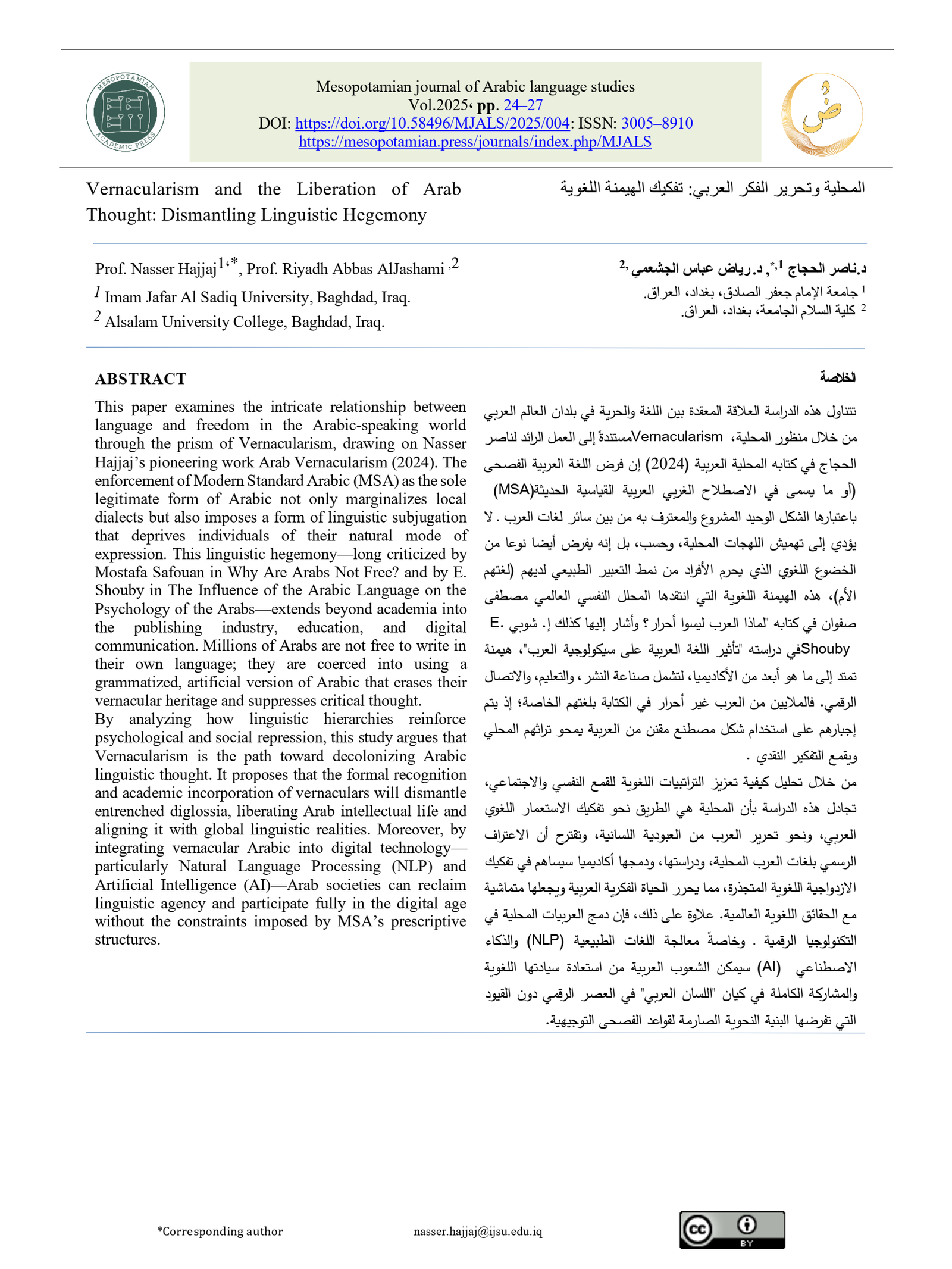Vernacularism and the Liberation of Arab Thought: Dismantling Linguistic Hegemony
Main Article Content
Abstract
This paper examines the intricate relationship between language and freedom in the Arabic-speaking world through the prism of Vernacularism, drawing on Nasser Hajjaj’s pioneering work Arab Vernacularism (2024). The enforcement of Modern Standard Arabic (MSA) as the sole legitimate form of Arabic not only marginalizes local dialects but also imposes a form of linguistic subjugation that deprives individuals of their natural mode of expression. This linguistic hegemony—long criticized by Mostafa Safouan in Why Are Arabs Not Free? and by E. Shouby in The Influence of the Arabic Language on the Psychology of the Arabs—extends beyond academia into the publishing industry, education, and digital communication. Millions of Arabs are not free to write in their own language; they are coerced into using a grammatized, artificial version of Arabic that erases their vernacular heritage and suppresses critical thought.
By analyzing how linguistic hierarchies reinforce psychological and social repression, this study argues that Vernacularism is the path toward decolonizing Arabic linguistic thought. It proposes that the formal recognition and academic incorporation of vernaculars will dismantle entrenched diglossia, liberating Arab intellectual life and aligning it with global linguistic realities. Moreover, by integrating vernacular Arabic into digital technology—particularly Natural Language Processing (NLP) and Artificial Intelligence (AI)—Arab societies can reclaim linguistic agency and participate fully in the digital age without the constraints imposed by MSA’s prescriptive structures.
Article Details
Section

This work is licensed under a Creative Commons Attribution 4.0 International License.
